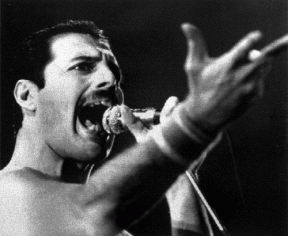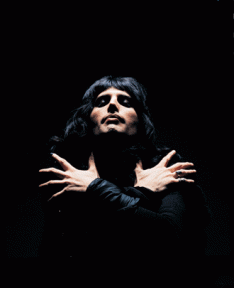In the 80s when I was just learning about western music, trying to decipher lyrics, identify bands and singers with their music, all with the help of an old fashioned radio displayed in our drawing room and the two request shows that would play on All India Radio over the weekend, there were a few things that became obvious over time. First that I Want to Break Free was possibly one of the most frequently requested songs. And that Freddie Mercury or Farrokh Bulsara just like Cliff Richards (who was born to an Anglo Indian mother in Lucknow) would always be claimed as our own because of his Gujarati Parsi lineage and his Panchgani connection.
But even more important than that was his voice and what it represented to a young India that had not yet seen globalisation, Internet, cafes at every block, shopping malls in every neighbourhood. To the India that knew of the world beyond Doordarshan only when the Grammy award night was aired or when a show called Hot Tracks played international music briefly, the cry of I Want To Break Free was something personal.
He was a global phenomenon who had begun like us but somewhere decided that just one reality, one identity was not enough for him. That he would be Freddie Mercury, the man of many rebellions. Against water tight definitions of who we are and what we can do. Against restrictive bands around the soul.
He learnt piano as a child as well as art and graphic design as a young man who was just beginning to feel something enormous stir inside him. He would channel this skill later to design the infamously glorious Queen crest and to turn himself into a chameleon about to explode in a cloud burst of colours and textures. And yet his music was not about appearances but a core of truth. His truth. And that of us all and everyone who wants to go out into the world and say, “I will be myself. No matter what.”
And he was. Whether he was inconveniently gay at a time when it was tough to be so or when he starred in a video we have never forgotten, vacuuming an apartment in a skirt and a bob or the many times, he pushed stage performances to the limits of surreal art. On stage, he was a movie, a symphony of images. Like he said himself, “We’re the Cecil B DeMille of rock music.” And yes, this was a life time before a Lady Ga Ga turned every public appearance into absurdist theater. Nothing about Freddie though was borrowed.
He never trained to be a singer. He was born to be one. His voice was one of a particularly joyous, boisterous, fearless angel who could rise upto a monsoon cloud and make it rain or hop, skip and jump over a mountain or become warm as sunshine or fizzy and tumultuous as an ocean. Oh yes, he could sing the pretensions off anyone pretending to be a rock star. He was the real thing. Someone who could be edgy rock, a mellow gospel note, a bouncing disco tune, the cold glint of metal.
And he could write! Bohemian Rhapsody? Don’t Stop Me Now? We Are The Champions? Crazy Little Thing Called Love? And counting. These are not songs but anthems that will never age though we will.
He was everything he wanted to be in his creative life. In his personal life though, he guarded the parts he wanted to keep to himself. Like his status as an HIV positive person but then he did not owe us anything more than his music. This was his choice and even though those who never create legacies of their own, accuse others of not using theirs responsibly, the fact is that with his music, Freddie Mercury gave us the most enduring gift of all. He taught us what one of his solos stated, “There must be more to life.” In his case, there really was. Happy Birthday Freddie.
Reema Moudgil has been writing for magazines and newspapers on art, cinema, issues, architecture and more since 1994, is an RJ, hosts a daily Ghazal show, runs unboxed writers, is the editor of Chicken Soup for The Indian Woman’s soul, the author of Perfect Eight (http://www.flipkart.com/perfect-eight-9380032870/p/itmdf87fpkhszfkb?pid=9789380032870&_l=A0vO9n9FWsBsMJKAKw47rw–&_r=dyRavyz2qKxOF7Yuc ) and an artist.








Nicely done piece on the “Queen” of music 🙂